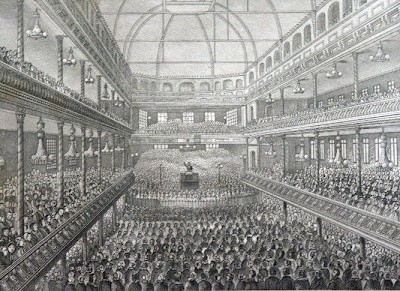
Oh, it is enough to make us Christians ashamed to think how sinners will confess their god! Hear them at night, as they reel home through the streets, they are not ashamed of their lord and master. Hear how they swear, and defy heaven! They are ashamed of nothing for their lord; and yet we, who have heaven for our reward, and such a Christ to serve, and one so good and gracious to us - look at us - look at us! What poor lovers of our Savior are we! What poor lovers of the souls of men! I know this is not true of all of you, for there are some of you who love men’s souls. I have delighted to see in many of you that deep earnestness which makes you yearn for the conversion of others. You will sometimes take your stand at the corner of the street, and though you cannot speak as you would, yet, the tears running down your cheeks prove your earnestness. There are many women among you, too, who have spoken a good word for Christ in strange places, and have never been ashamed of him. But oh! there are some of you, the members of this Church, over whom the angels of glory might weep, for what do you for Christ? What do you give to Christ?
From a sermon entitled "Am I Clear Of His Blood?," delivered July 20, 1862. Flickr photo by Rick Cooper; some rights reserved.

























